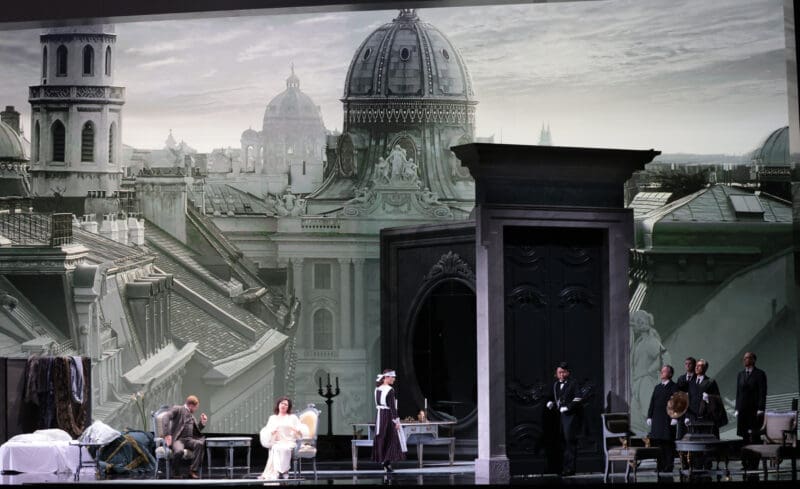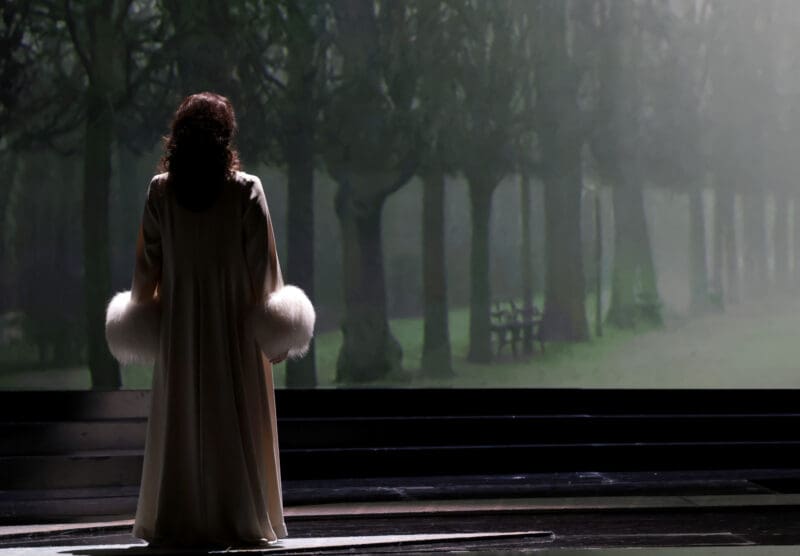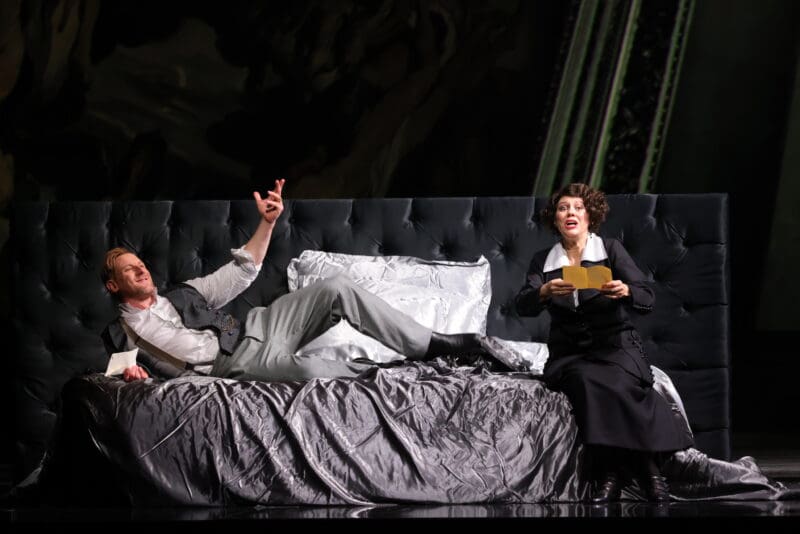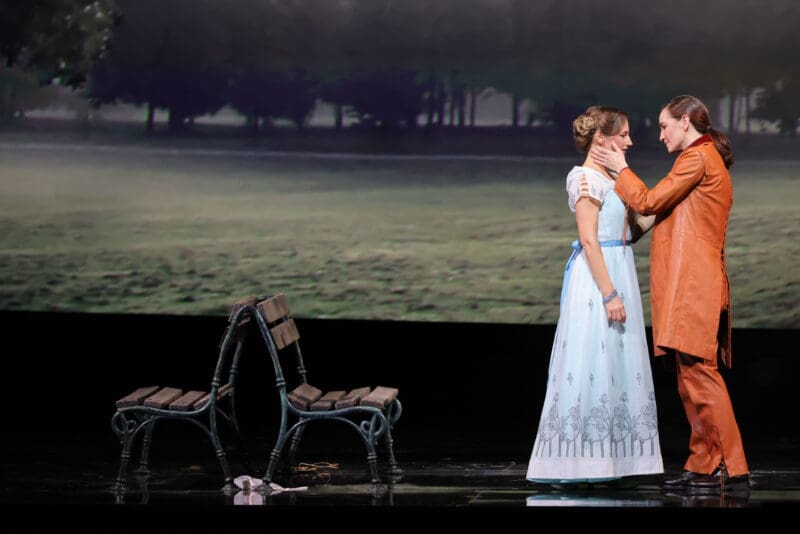From October 12th to the 29th, Berlin Philharmonic’s conductor led six performances of Strauss’s masterpiece in Harry Kupfer’s production. The cast included Krassimira Stoyanova, Kate Lindsay, Sabine Devieilhe, Günther Groissböck and Piero Pretti.
THE MOST eagerly awaited conducting debut of the season, but perhaps of recent years, is undoubtedly that of Berliner Philharmoniker conductor Kirill Petrenko who, in 2016 with the Bayerisches Staatsorchester, makes his debut with La Scala Orchestra’s six performances of Richard Strauss’ Der Rosenkavalier.
The production is by Harry Kupfer born in Salzburg in 2014 and seen at La Scala in 2016 with Zubin Mehta conducting. Die Marschallin is Krassimira Stoyanova, who had already performed the part in 2016 with Mehta, among others, Simon Boccanegra, Aida, Ariadne auf Naxos, Messa da Requiem and numerous concerts.

Photograph: Brescia e Amisano
Alongside her in the role of Octavian is Kate Lindsay, who sings for the first time at La Scala after starring in the diptych dedicated to Kurt Weill conducted by Riccardo Chailly during the pandemic. Sabine Devieilhe, who made her La Scala debut as Blonde in Entführung conducted by Zubin Mehta in 2017 and returned in 2019 as Zerbinetta alongside Stoyanova’s Ariadne, who plays Sophie.
On the male front, Günther Groissböck proposes, after Salzburg and La Scala in 2016, his virile and swaggering Baron Ochs, epitomising an aristocratic character stranger to the refinements of the capital but not merely grotesque. The Italian tenor has the ring of Pietro Pretti, who has performed a repertoire ranging from the bel canto of Lucia di Lammermoor and Pirata to Verdi’s Un ballo in maschera, I Vespri siciliani and Rigoletto.

Photograph: Brescia e Amisano
The opera arrived at La Scala in 1911, in Italian, conducted by Tullio Serafin with sets and costumes by Alfred Roller, an innovator of the stage design of the Staatsoper conducted by Gustav Mahler and future founder of the Salzburg Festival together with Strauss and Max Reinhardt. The evening’s outcome was compromised by a substantial misunderstanding of the opera aggravated by nationalistic protests against the depiction of the treacherous Italian Valzacchi and Annina.
With characteristic pragmatism, the names of the characters were immediately changed to Rys-Galla and Zephira. The knight returned to La Scala in 1927 with Ettore Panizza on the podium (but Strauss himself conducted the revival in ‘28), costumes by Caramba and Conchita Supervía as Octavian, while Iris Adami Corradetti appeared fleetingly in the part of the milliner; Panizza again conducted the 1947 edition, in which Italo Tajo was Ochs and the costumes were by Lele Luzzati.
The revolution came in 1952: Herbert von Karajan imposed the German version and an incomparable cast: Elisabeth Schwarzkopf is Die Marschallin, Otto Edelmann Ochs, Sena Jurinac Octavian and Lisa della Casa Sophie.

Photograph: Brescia e Amisano
The director is Karajan himself. Schwarzkopf and Otto Edelmann returned in 1961 with Karl Böhm and Rudolf Hartmann directing; with Christa Ludwig as Octavian and Anneliese Rothenberger as Sophie. The parade of excellent masters continued in 1976 with Carlos Kleiber conducting Evelyn Lear, Hans Sotin, Brigitte Fassbaender and Lucia Popp in Otto Schenk’s classic production.
In 2003 Der Rosenkavalier arrived at the Arcimboldi with Jeffrey Tate conducting and Pier Luigi Pizzi directing: Adrianne Pieczonka and Cheryl Studer alternate as Marschallin, Ochs is a highly acclaimed Kurt Rydl, Octavian is Kristine Jepson and Sophie Laura Aikin.

Photograph: Brescia e Amisano
In 2011 La Scala presented, in a co-production with Madrid and Paris, a production by Herbert Wernicke with Philippe Jordan on the podium and in the principal parts Anne Schwanewilms and Camilla Nylund, Peter James Rose and Kurt Rydl as Ochs, Joyce DiDonato as Octavian and Jane Archibald as Sophie.
Zubin Mehta conducted the 2016 Salzburg Festival production revived today: in the principal parts Krassimira Stoyanova, Sophie Koch, Christiane Karg, Günther Groissböck and, as Italian tenor, Benjamin Bernheim.
by Chidozie Obasi
